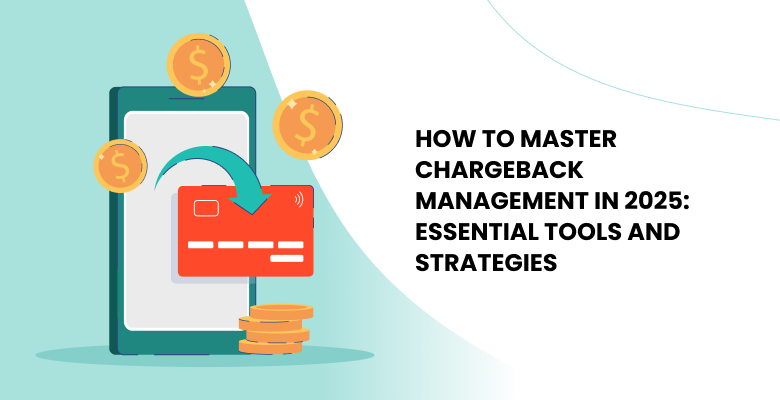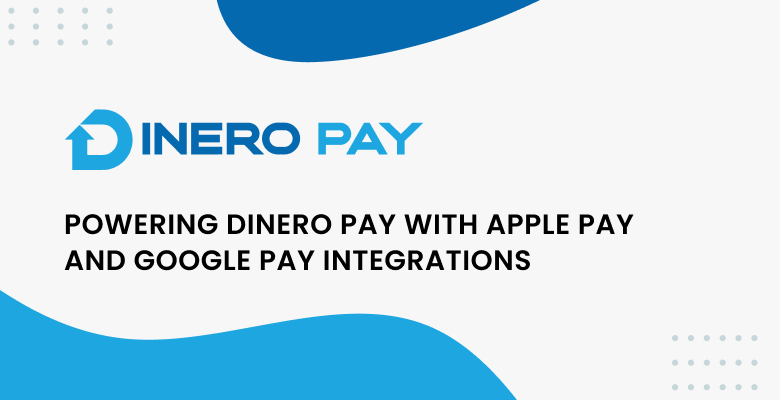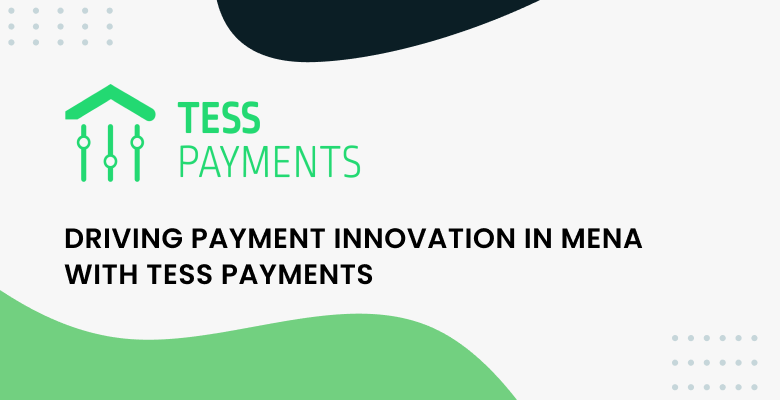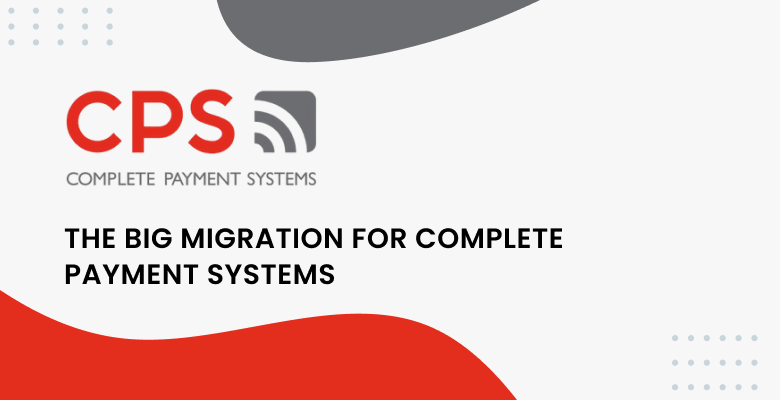
- Chargeback Management Is Evolving Fast. Are You Ready for 2026?
- What Tools Do You Need for Effective Chargeback Management?
- Proven Tactics to Reduce Chargeback Risk
- How to Choose the Right Chargeback Management Solution
- Why Akurateco for Your Chargeback Management?
- Conclusion: Chargebacks Are Inevitable. Losing Revenue Isn’t.
- FAQ
By 2026, chargebacks will no longer be a back-office issue; they will become a growing strategic risk to revenue, processor relationships, and consumer confidence. This year alone, chargeback costs worldwide are projected to exceed $117 billion, encompassing direct loss, operational overhead, and reputational damage. Businesses in sectors like eCommerce, SaaS, fintech, and digital services are especially vulnerable since even a slight increase in conflict volume can cascade into the likes of frozen merchant accounts, regulatory warnings, and margin loss.
This piece explores the requirements of creating a chargeback-proof infrastructure in 2026. Central to this effort is the efficient administrating chargeback payment system that combines seamless workflow management with automated dispute resolution. We discuss the most crucial technologies, service providers, and AI-driven solutions shaping the future of dispute management, including robust chargeback API integrations that enable real-time data exchange, faster dispute handling, and improved compliance.
These innovations demonstrate how platforms like Akurateco are helping businesses stay compliant, scalable, and profitable in the face of escalating chargeback pressure.
Chargeback Management Is Evolving Fast. Are You Ready for 2026?
Chargeback management is no longer just a reactive task for finance teams — it has become a strategic necessity. Chargebacks are predicted to cost companies over $117 billion in lost profits, administrative work, and fines in 2026. For eCommerce and SaaS businesses, it can mean up to losing access to tier-one payment processors, regulatory scrutiny, and reputational damage that affects long-term growth even at a 1% chargeback rate.
Contemporary businesses have no choice but to embrace AI-enabled systems, real-time analytics, and automated processes to handle and minimize chargebacks. This guide addresses:
- Best-in-class software to streamline your chargeback processes.
- Pivotal techniques to minimize disputes and increase win rates.
- How to compare and select a chargeback management service.
- Why Akurateco is the best fit for merchants at scale.
Learn how to build a chargeback-resistant infrastructure with data-rich insights, automation, and seamless payment integrations.
Explore our payment APIs for developer-friendly, chargeback-ready architecture.
What Tools Do You Need for Effective Chargeback Management?
As volumes of complex and recurring charges in 2026 continue to grow, reactive solutions are no longer adequate. Businesses need an active solution that offers speed, accuracy, and integration across their payments ecosystem. From real-time alerts to AI-driven chargeback automation, next-gen chargeback management demands purpose-built solutions capable of adapting to your industry, expanding with your business, and protecting revenue before it’s gone. In this section, we divide into parts the necessary technologies which constitute the core of an effective, forward-looking chargeback strategy.
1. Chargeback Notifications & Monitoring Systems
Instant alert systems such as Verifi and Ethoca enable merchants to detect disputes at the moment they are filed, making it possible for you to resolve the issue prior to triggering the chargeback. These systems enable you to have direct connections with card networks so that you can move quicker and prevent unnecessary losses.
2. Automated Dispute Systems
Artificial intelligence-powered automation software reduces the time and hands-on effort required in making and submitting dispute responses by leaps and bounds. By assembling evidence packets that include transaction history, user communication, and refund policies, these tools avoid human errors and improve your chances of success in reversal.
3. Fraud Detection Engines
Chargeback is among the principal drivers of fraud. Integrated fraud solution products help highlight high-risk transactions in real-time to avoid actual fraud (stolen cards), friendly fraud (buyer’s remorse), and merchant error (erroneously classified charges). By solving the root causes, you can reduce your volume of disputes.
Comparison Table: Chargeback Management Tools (2026)
Choosing the most effective chargeback management solution is not about more core features — it’s about how well a solution aligns with your existing stack, scales with your business, and aligns with your operating model. Some solutions focus on automation, while others focus on platform or processor integration. Below is a list of highly rated chargeback management solutions in 2026, such as Akurateco and top alternatives, to assist you in comparing the best solution for your business.
| Provider | AI Dispute Automation | Real-Time Alerts | Pricing Model | Integration Options |
| Akurateco | Yes | Yes | Custom | API-first, low-code |
| Justt.ai | Yes | Yes | Volume-based | API + dashboard |
| Chargeflow | Yes | No | % of recovery | Shopify/Stripe plug-ins |
| Midigator | Manual | Yes | Fixed + % | Enterprise integrations |
While most suppliers offer equivalent functionality on the surface, the real value comes from flexibility, depth of automation, and the extent to which the solution can be integrated with your processes. Akurateco stands out through its custom pricing, low-code integration options, and built-in fraud prevention as well as chargeback automation support — making it specifically designed for firms that operate on more than one PSP or platform. For companies that desire complete visibility and control of controversies, scalability and integration functionality should be paramount.
AI + Machine Learning: The New Backbone of Chargeback Prevention
Machine learning and artificial intelligence help firms predict and preempt disputes before they occur. Such tools examine historical information, recognize patterns of chargebacks, and respond with best-practice recommendations automatically. When combined with real-time analytics, they enable:
- Identification of high-risk transactions before they result in chargebacks.
- Auto-tagging by type of chargeback (e.g., fraud, user error).
- Shorter conflict response times — from seconds to minutes.
- Greater understanding of patterns of fraud, abuse of policy, and client usage.
Proven Tactics to Reduce Chargeback Risk
Reducing chargeback risk is a business problem that every online payment processing company must address. Chargeback management is not technology — it is well-planned processes designed to limit disputes and gain customer trust. In the remainder of this section, we’ll cover three winning strategies that will enable you to minimize chargeback volume significantly, win more disputes, and deliver an improved customer experience.
1. Dispute Handling Best Practices
Winning a chargeback begins much earlier than when the case is being filed. Start by maintaining merchant-side practices that ensure visibility and traceability:
- Use obvious and distinguishable billing descriptors to limit consumer confusion.
- Provide instant customer support and complete payment history access.
- Maintain diligent documentation (terms, tracking details, screenshots) and send it with each dispute package.
Incorporating the WLPayments method for chargeback can further optimize your dispute handling by streamlining case evidence collection and improving response time.
2. Customer Transparency = Less Disputes
Empowering customers to have access to self-service portals for refunds, subscription management, and billing queries significantly reduces chargeback frequency. SaaS companies that facilitate in-app automated refunding and clear cancellation paths have up to 40% less disputing. Using a payment processor for chargeback management system that integrates customer transparency tools is essential to this approach.
3. Advanced Analytics for Pattern Recognition
Granular analysis may reveal patterns of disputes. For example, if a merchant discovers that one checkout route explained 60% of chargebacks, the merchant can solve UI or payment issues and save thousands of dollars annually. Charging back reasons can be grouped to allow for remediation proactively at either design or operational levels. Leveraging AI-powered fraud and chargeback prevention tools enables real-time identification of suspicious transactions and reduces false positives, improving overall dispute management efficiency.
Bonus: Understand Arbitration
When a chargeback reaches beyond representment, it goes into arbitration — a heavy-duty process where the card issuer and acquirer fight it out for resolution. Arbitration generally works in favor of cardholders unless the chargeback management companyprovides rock-solid documentation. Firms need to be ready with packet automation creation and legal-level specificity.
Explore Akurateco’s chargeback-ready payment system for faster, more reliable dispute handling.
How to Choose the Right Chargeback Management Solution
A robust solution must offer more than just notifications — it should integrate with your existing stack and scale with your business.
4 Things to Look for:
- Built-in real-time monitoring and alerting mechanisms
- Developer-friendly APIs and low-code integration options
- Support for merchant-specific business rules and use cases
- Clear, predictable pricing models with no hidden fees
Industry-Specific Capabilities
Different industries face unique challenges when it comes to chargebacks. Your solution should offer tools tailored to your business model:
- eCommerce: Tools for tracking delivery issues, checkout fraud, and policy disputes
- SaaS and subscription: Systems that detect trial abuse, delayed cancellations, and automatic renewals
- High-risk verticals: End-to-end tools that combine analytics, alerts, and processor coordination for complex disputes
“Akurateco’s adaptive API for payments gave us the flexibility to manage chargebacks across 6 platforms. Integration took just 4 days.” — Payments Lead, Global SaaS (fictionalized)
Why Akurateco for Your Chargeback Management?
Akurateco offers a purpose-built chargeback management service designed for global Akurateco stands out by offering a comprehensive, all-in-one platform designed to streamline chargeback management across high-volume, multi-PSP environments.
Its architecture supports pre-dispute interception via Verifi/Ethoca, AI-driven response generation tailored to issuer rules, and seamless integration with your entire payment stack. Merchants can track disputes, reasons, outcomes, and BIN-level trends through a single analytics dashboard—enabling not just resolution, but long-term optimization.
Akurateco’s automation capabilities improve both speed and accuracy. By leveraging ML-based classification and issuer-specific logic, it increases win rates while reducing time spent on manual work. For aggregators and fintechs, the platform’s scalability and configurability make it a reliable long-term partner.
With Akurateco, you can:
- Cut chargebacks by up to 40% through early alerts and automation
- View and act on disputes across multiple payment systems in a unified dashboard
- Deploy a unified payment API to manage transactions, fraud checks, and disputes in one place
Learn more about our fraud and chargeback solutions
Conclusion: Chargebacks Are Inevitable. Losing Revenue Isn’t.
In 2026, chargeback management is no longer a back-office function; it’s a frontline defense system and a central part of merchant strategy. As payment systems become more advanced and customer expectations rise, the ability to resolve disputes proactively and at scale is the key difference between market leaders and their competitors.
Platforms like Akurateco not only allow companies to recover lost revenue but also offer actionable information on the causal problems that drive conflict. Whether fraud hotspots need to be uncovered, checkout experiences need to be optimized, or subscription models need to be refined, chargeback intelligence is a feedback loop that drives overall business performance.
AI-driven platforms reduce human effort, improve contest win rates, and offer real-time interception before matters reach full formal chargebacks. For scaling businesses that take payments across multiple PSPs, currencies, and risk profiles, such capabilities are not a nice-to-have, but a must-have.
In summary, chargeback management excellence in 2026 is not just about fighting disputes. It is more about turning risk into resilience, friction into trust, and data into decisions.
Begin with a live demo and learn how Akurateco reduces chargebacks at scale.
FAQ
What is chargeback management, and why is it so crucial in 2026?
Chargeback management is the end-to-end handling of preventing, managing, and disputing payment chargebacks—customer-filed reversals of card transactions. In 2026, with transaction volumes and digital fraud continually on the rise globally, chargeback success is no longer just an exercise in cost recovery; it is also a crucial component of fraud prevention. It’s a matter of strategic necessity, protecting merchant accounts, maintaining processing privileges, and defending brand reputation. Unwanted chargebacks can lead to account holds, increased reserve requirements, or blacklisting by payment processors.
Can a chargeback be reversed once it’s been filed?
Indeed. Merchants can contest a chargeback by submitting a representment, a collection of solid evidence that the transaction was legitimate. It may include signed delivery receipts, records with customer information, IP addresses, device details, and transaction history. The problem is resolved in the merchant’s favor when the evidence is convincing. Timing is crucial here; each case has a tight response timeline, typically 7 to 21 days.
What are the most common causes of chargebacks in 2026?
The most common causes are:
- Friendly fraud: Valid payments later contested in bad faith by customers (typical in retail and subscriptions)
- Actual fraud: Unauthorized payments made due to compromised payment details
- Merchant mistake: Billing mistakes, ambiguous return policies, or poor customer communication
- Service dissatisfaction: Customers requesting a chargeback due to failed expectations or delivery failure
As technology improves in recognizing friendly fraud patterns and merchants enhance pre-purchase disclosure, the goal is to reduce chargebacks before they become issues.
How are chargebacks different from refunds?
Chargebacks are involuntary reversals initiated by cardholders through their issuing banks. Refunds, by contrast, are voluntary merchant actions, most often taken to resolve a complaint or facilitate a return. Refunds leave merchant control of the transaction intact, while chargebacks remove such control and usually entail additional fees, reputational harm, and regulatory sanctions.
Which are the most effective tools for automated chargeback management?
Chargeback payments monitoring system like Akurateco offer end-to-end automation of chargebacks, making them particularly suitable for high-volume operations. Through API-first design, real-time dispute capture, evidence generation with AI, and central dashboards, Akurateco minimizes manual effort while maximizing win rates.
For small to medium-sized businesses, lighter-weight options like Chargeflow or Justt.ai can offer plug-and-play integrations with Shopify, Stripe, or custom dashboards.
How do companies prevent chargebacks?
Most effective tactics include:
- Clear refund and cancellation policies,
- Readable billing descriptors,
- Fraud filters powered by AI,
- Customer self-service refund and cancellation.
Pre-dispute tools like Verifi and Ethoca to resolve issues before factual disputes
Constituted as a risk management stack, these approaches can reduce chargeback volumes by over 40%.
What operational improvements can merchants expect after integrating a chargeback management platform like Akurateco?
Before integration, merchants often struggled with multiple disconnected tools and PSP dashboards, leading to fragmented data, manual workflows, higher costs, and inconsistent dispute outcomes. As a chargeback management system example, Akurateco unifies fraud screening, PSP logic, customer communication, and dispute resolution into a single platform, providing real-time analytics and streamlined processes that reduce operational friction, improve win rates, and enable scalable, efficient chargeback management.






